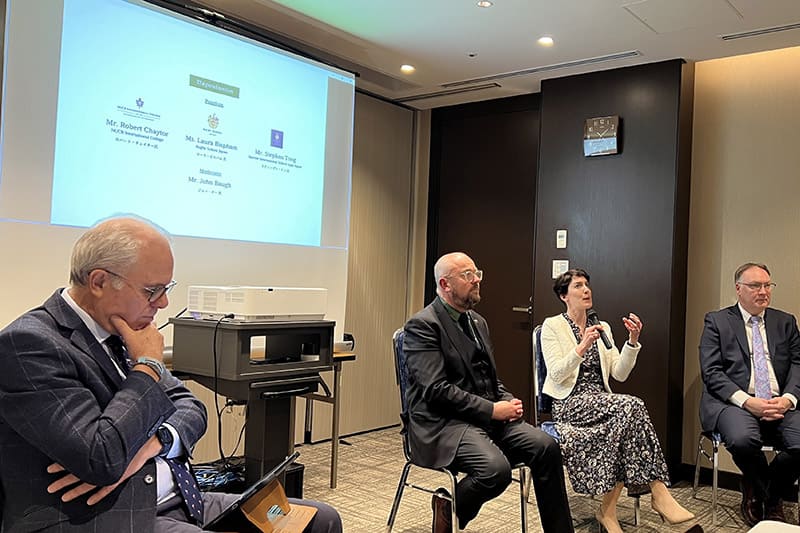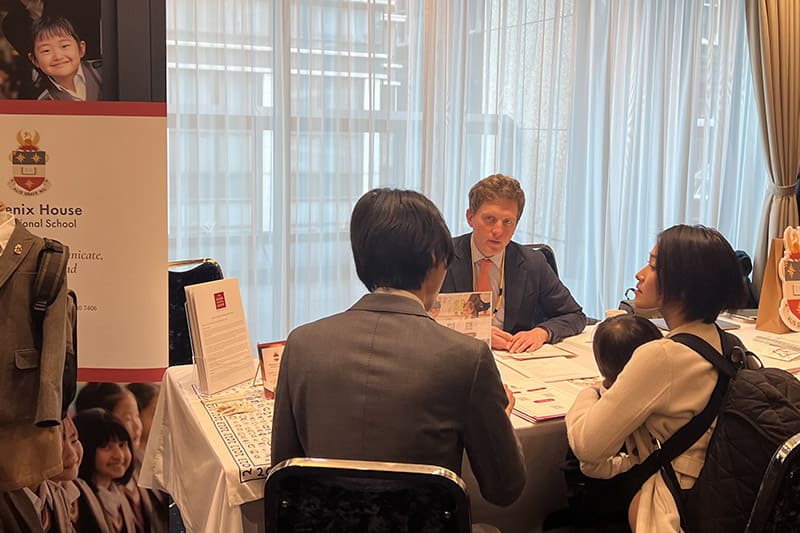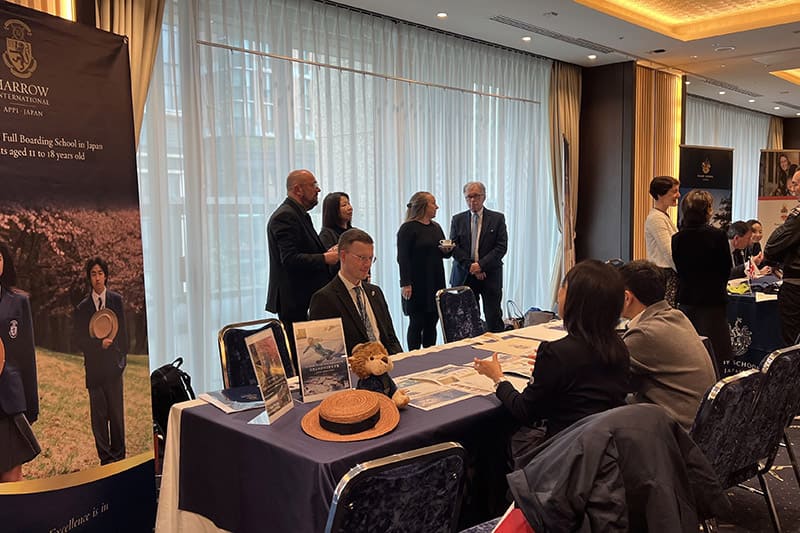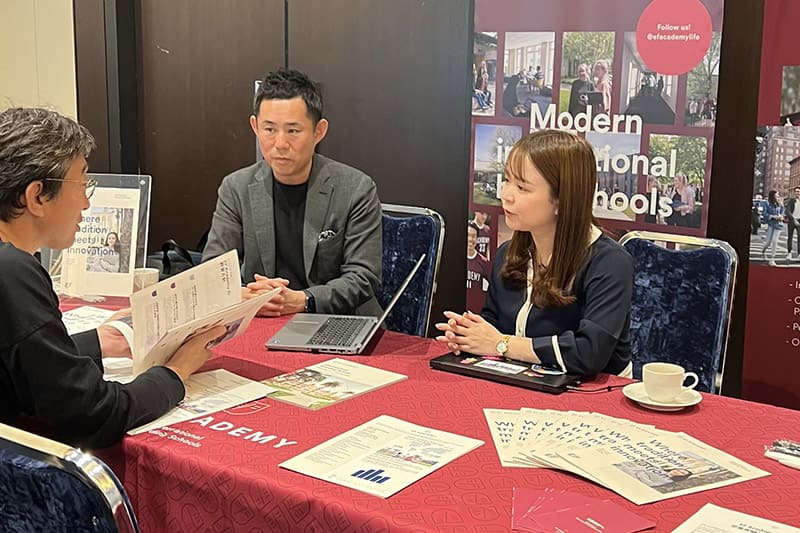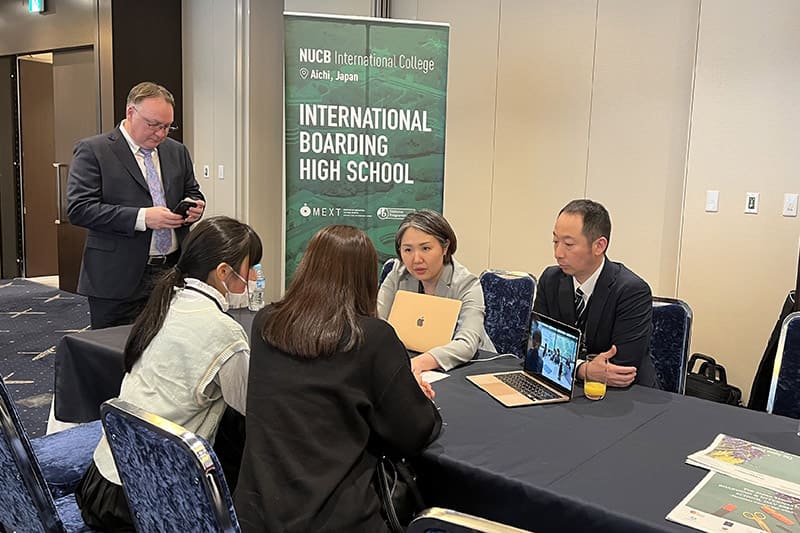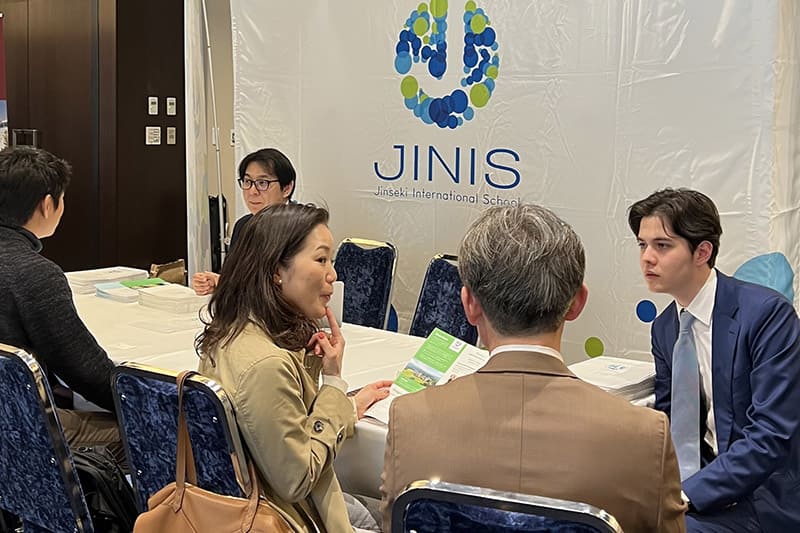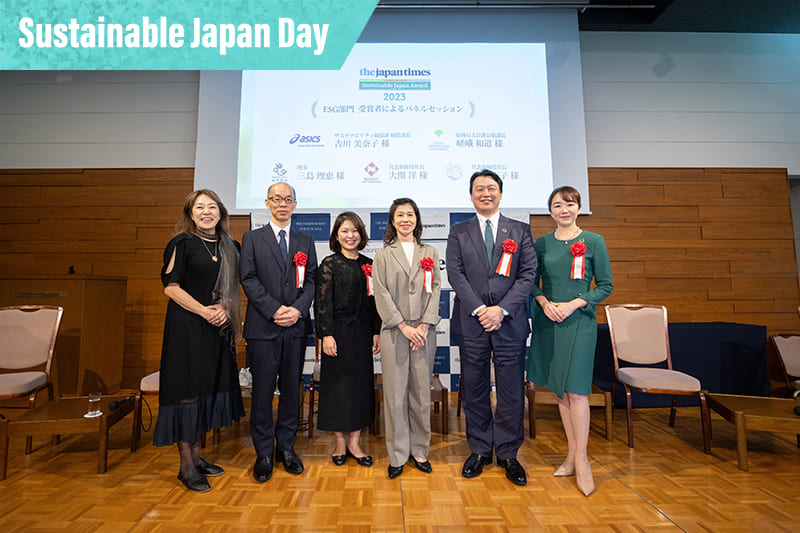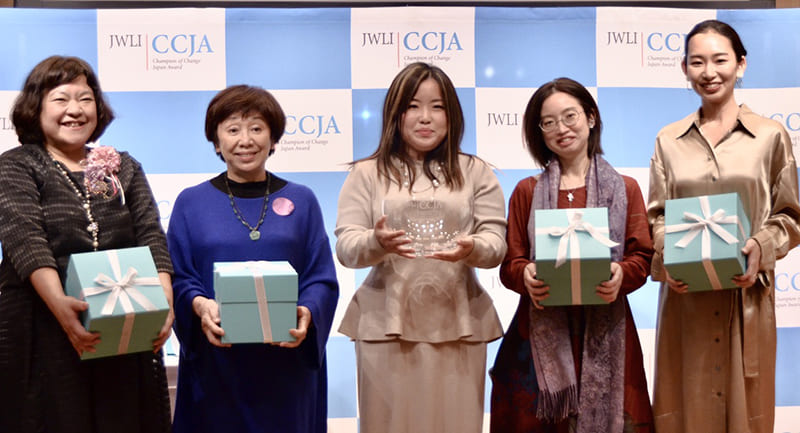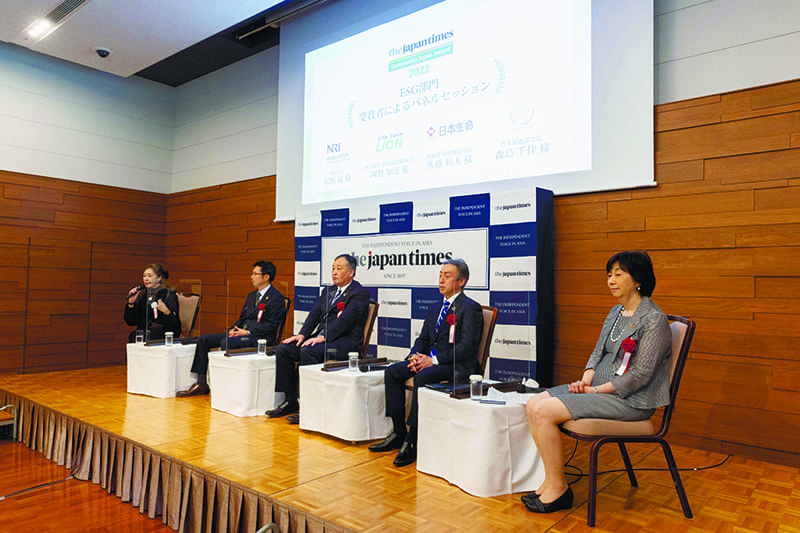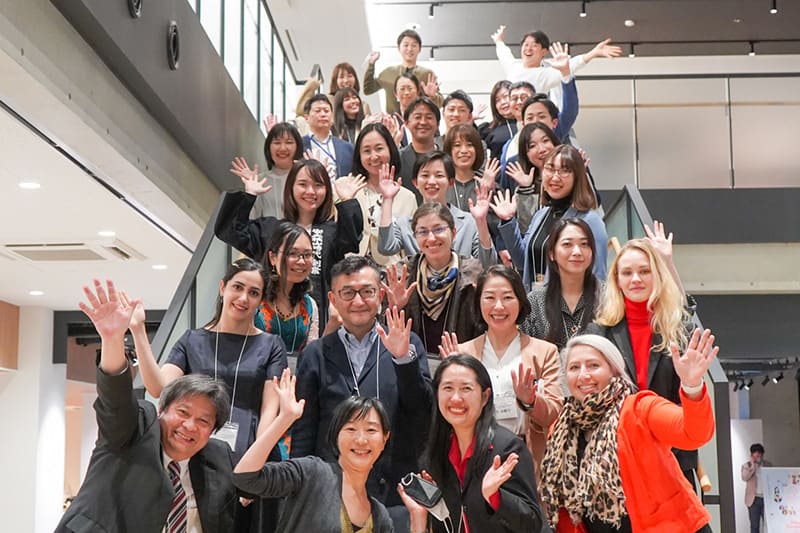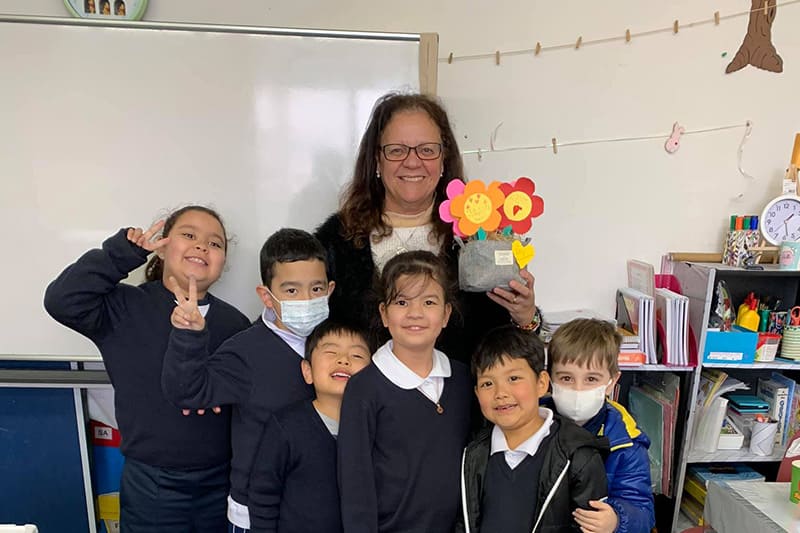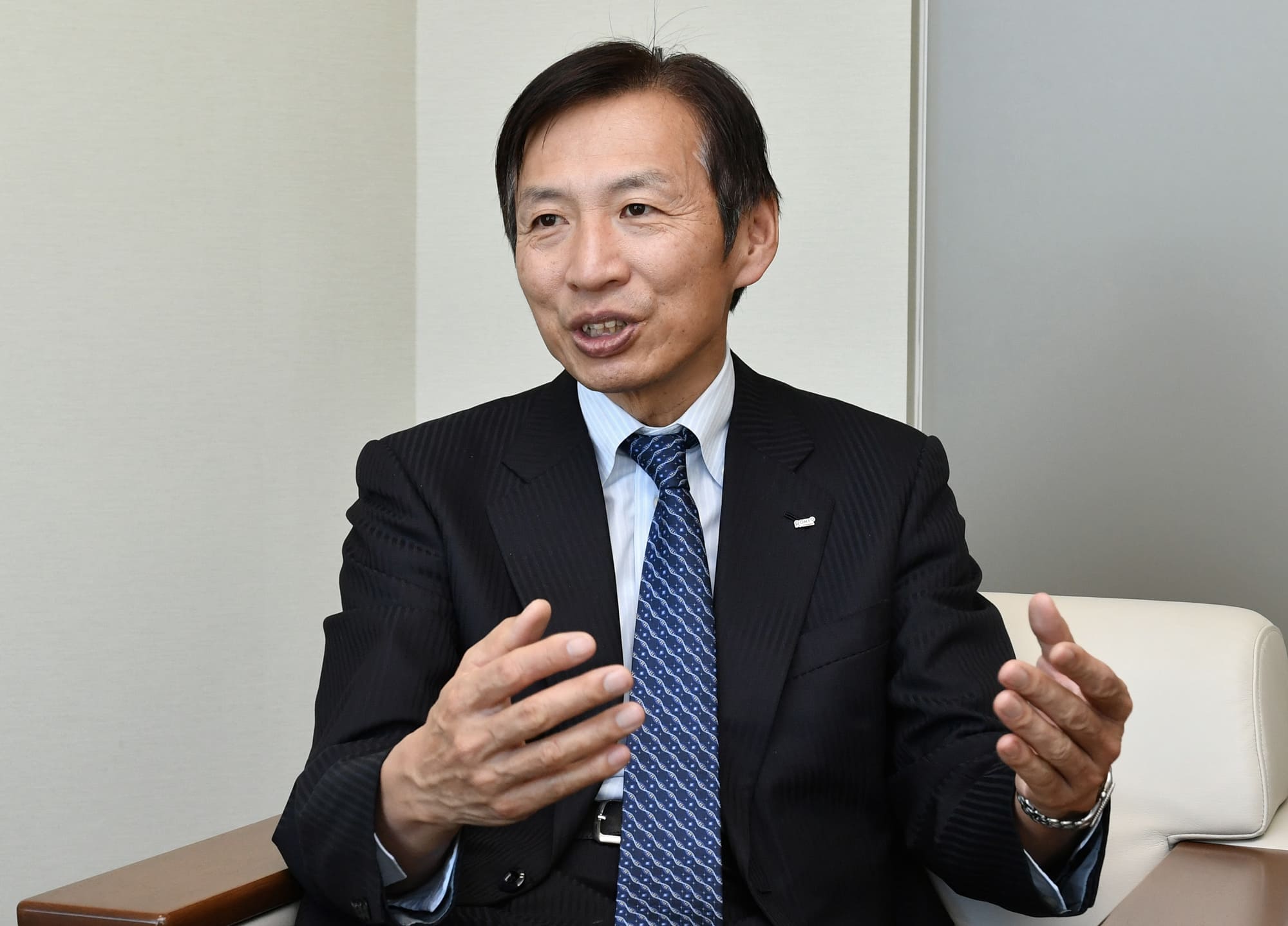May 02, 2024
Roundup: Boarding and International School Day
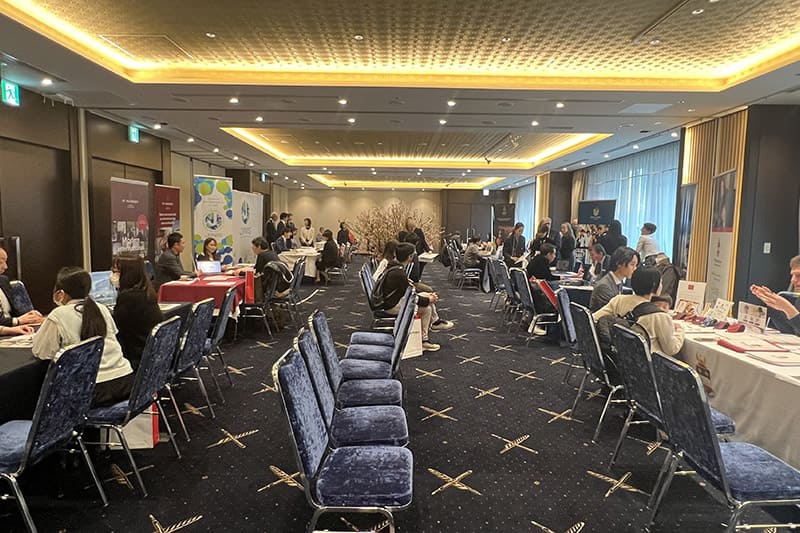
The Japan Times Boarding and International School Day 2024 for elementary to high schools was held at the Foreign Correspondents’ Club of Japan in Tokyo’s Chiyoda Ward on April 6.
In Japan, educational options have been widening with an increasing number of international and boarding schools in recent years. They are all unique in terms of location, year levels and the kinds of curricula offered, facilities, boarding and day options, extracurricular activities, composition of students and so on.
The event provided a rare opportunity to learn the advantages of international and boarding schools through talks by experts and faculty members representing some of the schools in Japan. It also allowed participating parents and children to ask questions directly to representatives of the eight schools that exhibited at the venue in order to understand the characteristics of each and think about which could be the best choice for them.
U.K. expert John Baugh asks what makes a school good
In his keynote speech, “Education for Enlightenment: Educating Children for Their Future, Not Our Past,” John Baugh, adviser to Jinseki International School in Hiroshima Prefecture and former headmaster of the U.K.’s Oxford Dragon School, talked about what is expected of education in contemporary society and what are the qualities of good schools that can meet expectations.
“In Britain, as in many countries, our school systems are locked in the past. They were built around or they copied an industrial model designed to provide obedient and compliant workers for factories and offices,” he said. He pointed out that what was expected of workers during the age of industrialization was not imagination or creativity but an ability to keep routines, and schools in that era trained their students to gain this ability and offered little time for free play in which children could learn from creating and exploring mental models of the world.
Baugh continued that, similar to the simple industrial process of using hard work to turn raw materials into a product, the success of a person was believed to be achieved by putting together knowledge, discipline, order, routine and structure.
Then he asked what success and happiness are, and whether conventional education is making people happy in our current world. Referring to data showing that a significant number of children suffer from mental issues and that there is no correlation between household income and how happy people feel in his country, he said, “Education actually isn’t doing what it could to help young people live flourishing lives.”
“I believe that the main function of education in contemporary society is to promote human flourishing,” he said. Human flourishing, he explained, includes not only some of the main elements in life — such as freedom, health and happiness — but also a person’s rights and responsibilities in society as well as their emotional, spiritual, personal and social well-being, and the development of every gift and talent in a young person.
Then he referred to how many years people spend receiving education and said: “Schools that see education as just a preparation for life, I think, are missing the point. Education has to be about the part of life itself.” He said good schools are the ones that manage to fill the years of youth with security, graciousness and ordered freedom that serve as the seedbed for personal flowering.
He also said good schools are clear about their values and live those values through everything they do — paying attention to people and their emotions, and always putting children at the center, not the adults who run the institutions. “I would like to give childhood back to children,” he said.

Le Rosey’s Michael Rob Gray: Boarding schools let kids flourish
Michael Rob Gray, former principal of Le Rosey in Switzerland, began his keynote speech by saying that boarding schools are suited to providing the kind of ideal educational model that Baugh discussed in his keynote speech: an education that promotes human flourishing, always putting children at the center.
Gray, who has 20 years of experience in working in international boarding schools, said a boarding school mixes academics and community in a way that lets children and adults come together in a special synthesis that creates something much more than just educational and personal fulfillment.
Yet international boarding schools are just beginning to gain recognition in Japan, and it is natural for parents to both be skeptical and have high hopes. Gray said some Japanese parents may think it a risk to send their children to boarding schools, considering that Japan is doing relatively well in terms of the Programme for International Student Assessment (PISA) provided by the Organisation for Economic Co-operation and Development.
“That’s not really the case because there have been PISA-type tests in some international schools and boarding schools, and the results have come out extremely well. These schools are academically very strong,” Gray said. He also said that although short-term homesickness is common, modern communications technology and easier travel these days help relieve the problem.
As for the right age to send a child to a boarding school, he said 8 is typical but it can be as early as 5. It can also be older for those in the later years of schooling, but he warned that competition increases and admission systems become more complex as age rises.
He then shared what schools might look for when admitting students. “In my admissions committee, for example, we do look at academics, particularly mathematics and English,” he said, explaining that it is important for students to be able to cope with the school’s academic curriculum. However, he said, emphasis is placed on whether children are ready for community life — whether they will flourish at the school, what they will bring to the school and the community, and how they are going to benefit from the community.
He showed videos of some of the world’s reputable boarding schools with long histories, such as Harrow School in the U.K., Geelong Grammar School in Australia, Ashbury College in Canada, Le Rosey in Switzerland and The Lawrenceville School in the United States. He also shared information on some of the international boarding schools in Asia, such as Marlborough College Malaysia and Rugby School Japan, which are relatively new in terms of buildings and facilities but are affiliated with renowned British schools, to provide more options to find a school best suited for each child.

Panel discusses the role of education now and in the future
In the panel session, three speakers representing different schools — Laura Bispham of Rugby School Japan, Robert Chaytor of NUCB International College and Stephen Tong of Harrow International School Appi Japan — introduced their schools, which all opened in Japan in recent years, and discussed the role of education in the current and future world. The session was moderated by John Baugh.
Rugby School Japan in Chiba Prefecture offers not only British but also holistic education. It collaborates with universities and entrepreneurs to bring real-life situations into the school experience. “We are looking for students who are ambitious, and we want to be ambitious for them as well. And we’re looking for people who have the intellectual curiosity and the ability to be brave and courageous,” Bispham said.
NUCB International College in Aichi Prefecture offers individualized learning journeys in small class sizes. “The one promise I make to all our parents and our school community is we do our very best to look after the safety of the students and to treat them the way we always want our own children to be treated,” Chaytor said.
Harrow International School Appi Japan, the 10th Harrow School opened in Asia, boasts abundant natural seasonal beauty surrounding the school in Iwate Prefecture. “It’s an environment where young people have to become independent and resilient. They will better understand human interactions and their context — and the world,” Tong said.
Discussing what more schools can do for students, Bispham said that enhancing engagement by industry would be important. She pointed out that greater involvement of companies in high school and university education helps students not only prepare themselves but also better serve their future workplaces. “I think it’s important to ensure that students are excited about what they are learning and experiencing at school and they see that the excitement and curiosity can continue into the world of work, rather than making them feel as though education and work are two separate periods of life,” she said.
Chaytor pointed to the rapid advancement of technology and said, “Our children are going to enter into a workforce where nearly all positions which are available to them to work and to live have not been invented yet.” For children to be able to do that, he said, education needs to help them acquire life skills. “A teacher’s role would be incredibly important in that,” he said.


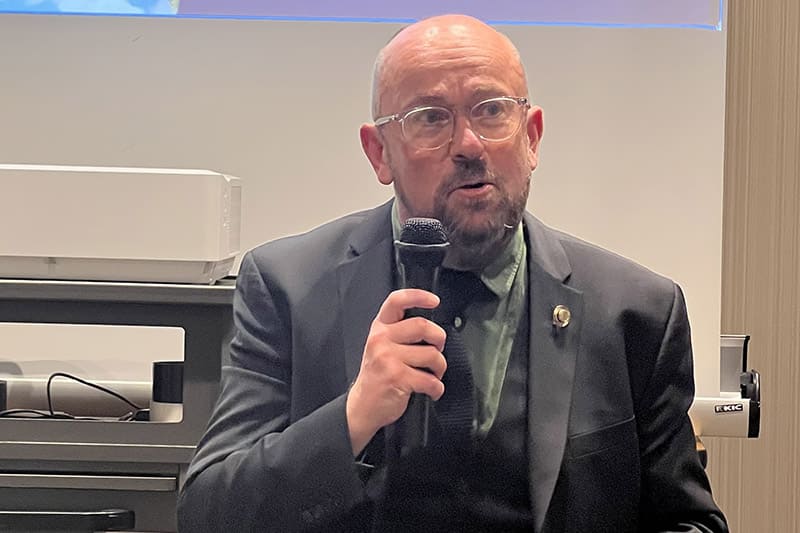
Even in our fast-changing world, Tong said, one thing that education will continue to do is to prepare youngsters for human interactions. “I cannot see the world being successful, wherever technology takes us, if there isn’t a focus on being able to communicate and on interactions among people,” he said.
Looking at students’ lives ahead from a long-term perspective, Tong said, “Someone shared a thought with me that life is like a three-legged milking stool, with the first leg reflecting our work and economic well-being, the second one reflecting our mental and physical health, and the third one relating to our human interactions.” He went on to say that life is best when all the legs are on the ground, and tougher when the stool is tipped so that any of them are off the ground, and that schools and educators have a huge part to play in helping their students keep all three legs on the ground and survive even in tough times so that if “one leg is off the ground, students know how to cope and put that right, and if two legs come off the ground, they have a network to help them redress the balance,” he said.
To the parents participating in the event to learn about various schools and widen the potential choices for their children, Chaytor advised them to visit the schools they had in mind no matter where they are before choosing an institution. “Because it is about finding the best fit for your child and your family. The three-way partnership of the family, the child and the school need to work together well. And I always ask the child, ‘Can you imagine yourself in our school?’ It’s a very important thing, because happy students do well,” he said.
